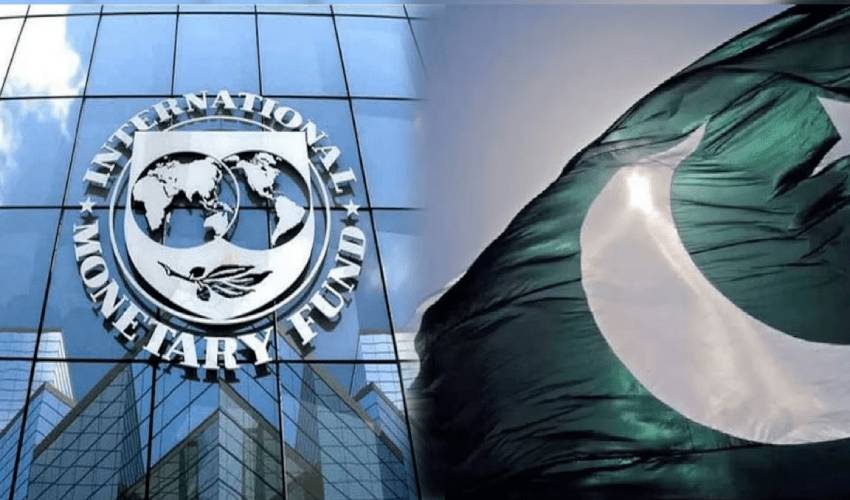
Muhammad Arif
Pakistan’s economy has long been trapped in a cycle of bailouts and short-term fixes, but the present moment feels deeper, sharper, and more structural. There is an enduring perception that the International Monetary Fund (IMF) “micro-manages” Pakistan’s economy — and with reason. Its fiscal oversight is selective: it focuses relentlessly on enforcing loan covenants that protect the interests of Bretton Woods institutions, while showing little concern for the society that ultimately repays these loans. The Fund turns a blind eye to corruption, performance gaps, leakages, maladministration, and overspending, yet drills deep into areas aligned with its own agenda. The true crisis, however, is not only external. Our own governance failures have eroded credibility, while falling energy consumption and worsening social conditions reveal an economy not just slowing but hollowing out. IMF and other Bretton Woods institutions have never made eradication of corruption or improvement of governance as binding conditions for their support.
Each IMF review ends with optimistic declarations — primary surplus achieved, reserves stabilised, inflation trending down. The Fund collects vast amounts of information and could push corrective action if there were genuine interest in Pakistan’s long-term well-being. Though after a considerable and deliberate sileince, the recent IMF demand to reconcile an $11 billion hole in import statistics is not trivial bookkeeping; it strikes at the heart of governance credibility. How can exchange rates, current account targets, or industrial policy be set when the import bill is understated by billions due to outdated data queries and fragmented institutional silos? We have allowed Pakistan Revenue Automation Limited, Pakistan Single Window, the Pakistan Bureau of Statistics, and the State Bank of Pakistan to operate on different tracks, with no binding legal obligation to maintain a single, verifiable trade ledger. IMF scrutiny fills the vacuum we have created.
Equally troubling is the steady decline in energy consumption — electricity, gas, and petroleum. This is not efficiency; it is distress. Factories are silent because high input costs have crushed competitiveness. SMEs and export clusters have scaled back or closed. Transport demand is falling with trade contraction. Gas usage is suppressed by outages and plant shutdowns, not entirely by green innovation. In every healthy economy, rising energy demand accompanies production, transport, and income growth. When demand collapses, jobs and incomes vanish. Fiscal health worsens as lower power consumption drives up capacity payments on idle plants and gas network losses grow.
The economic breakdown is mirrored in society. Fundamentals are deteriorating, as shown by declining social mobility and the shrinking social status of ordinary citizens. Crimes are increasing — from street theft to violent offences. Corruption, already deep-rooted, spreads further into service delivery and governance as public trust erodes. Most painfully, millions of children remain out of school — an entire generation pushed further from opportunity because the state cannot provide security, education or hope. Economic contraction is not an abstract concept; it lives in families forced into informal work, in unsafe streets, in lost childhoods.
Many resent the IMF’s granular involvement in micro management such as forced increase in electricity gas prices without any regard or requirement to control losses, corruption, inefficiency, malpractices, over spending and unvoidable projects and improvement governance and data integration across the board. As said earlier, though selective, such “micro-management” thrives only where local competence and accountability are weak. If our statistical base, energy planning and social investments were strong, no external lender could dictate method or narrative. The answer is not to reject IMF oversight but to render it unnecessary by building law-anchored systems: a unified national trade and energy data platform integrated across customs, the State Bank and distribution companies; transparent revision protocols with proactive disclosure; credible energy demand restoration through rationalised tariffs and export-oriented industrial policy; social investment that reverses declining school enrolment and insecurity; fiscal credibility built on facts rather than optics.
True sovereignty is not achieved by rejecting external advice while remaining fiscally dependent. It comes when Pakistan can design and execute its own growth model — one that recognises that data integrity, energy health, social well-being and investor confidence are inseparable. Economic policy built on incomplete numbers, declining energy use and eroding social cohesion is policy built on sand. Until we correct the record, acknowledge contraction, and offer a credible path to productivity, security and education, every negotiation — whether with the IMF, World Bank or private creditors — will remain asymmetrical.
Pakistan’s economic debate must move beyond optics — beyond victory tweets after IMF tranches or single-month current account surpluses. The fundamentals have deteriorated during the last three years and are deteriorating every passing day. Consumption is down because production is down. Jobs are lost because energy is unaffordable. Social despair deepens as crime and corruption rise and children are pushed out of classrooms. Our data is questioned because we failed to modernise, audit or be honest to ourselves, our children and our country. The only solution of our all ill lies in direction, intent, honesty, competence and governance. Pakistan can no longer afford denial.
The author is: former Member, OGRA, Mnaging Partner at Arif & Associates, a boutique petroleum and business law consultancy, is a thought leader in energy, governance, regulatory and economic policy reforms.
(Views expressed by writers in this section are their own and do not necessarily reflect ‘World News AM’ point of view)


